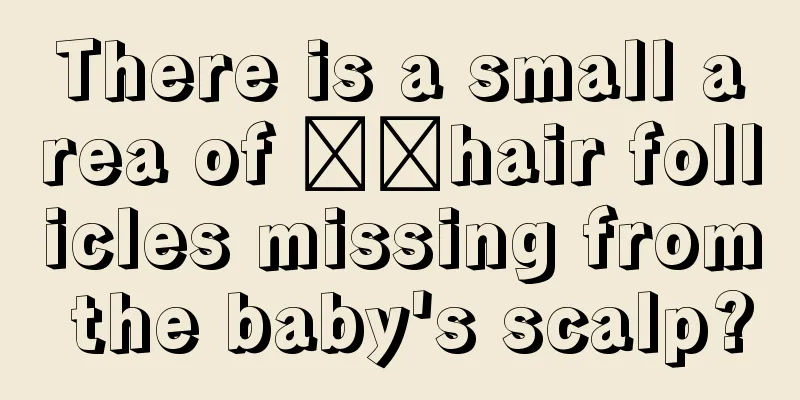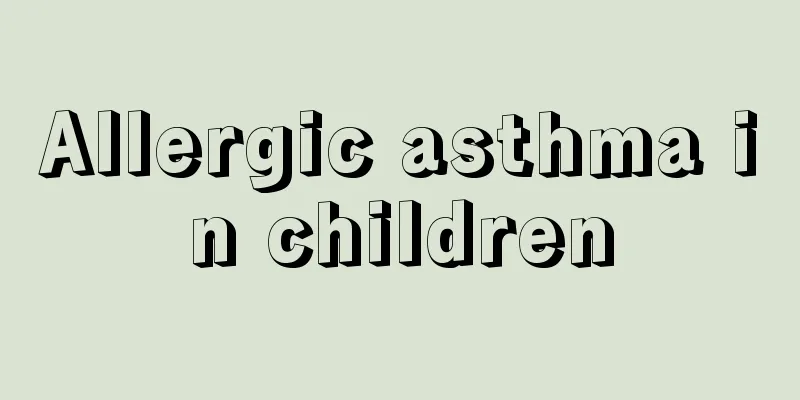What is the reason for frequent urination in little boys?

|
Frequent urination and urgency are more likely to occur in adults, especially adult men. This is related to many bad living habits of adult men. But sometimes children also have frequent urination. At this time, parents should pay attention to it. It is best to take the children to the hospital for examination. The real cause can be found through scientific examination. What is the reason for frequent urination in little boys? 1. Urinary tract infection The most common urinary tract infection is characterized by frequent urination, accompanied by urinary incontinence and enuresis, as well as redness, swelling and pain in the vulva, excessive secretions, and a large number of white blood cells in the urine. Urinary tract infections are often diagnosed with a urine culture and are treated with antibiotics. 2. Allergic diseases The child has very severe urinary frequency, accompanied by redness and itching, but no secretion and no abnormalities in the urine routine examination. Such children often suffer from long-term coughing, runny nose, snoring, skin rashes and other systemic allergic symptoms. Some mothers bring their children to the hospital without explaining that their children have these problems, and only care about the frequent urination, which may lead to misdiagnosis. 3. Parasitic Infection There are symptoms such as frequent urination, anal itching, and enuresis. It is common in kindergarten children. When they are infected with pinworms, you can check around the anus when you have frequent urination or itchy buttocks to see if there is any worm activity. If this is the problem, it should be treated with anthelmintics. 4. Glomerulonephritis In addition to frequent urination, there may be more serious symptoms, such as swollen face, less urine, brown urine, proteinuria, etc. You should see a kidney specialist in the hospital as soon as possible. 5. Neuropsychiatric urinary frequency There is also a type of urinary frequency called neuropsychiatric frequent urination, also known as daytime frequent urination syndrome, which is an independent disease in pediatrics. The age of the affected children is generally between 2 and 11 years old, and most cases occur in preschool children. The characteristics of the disease are frequent urination, once every 2 to 10 minutes, and the amount of urine excreted each time is very small, sometimes just a few drops, and there is no frequent urination after sleep. Such frequent urination symptoms often worsen before going to bed, during meals, and in class. Children with this disease often have a strong urgency to urinate and cannot hold it for even a moment. Smaller children often wet their pants because of this, but multiple urine tests have been normal. When they visit some primary medical institutions, they are often misdiagnosed with urinary tract infections and treated with antibiotics, but the effect is not good. The reason for neuropsychiatric frequent urination in children is, on the one hand, that their cerebral cortex is not yet fully developed, and their inhibitory function on the primary urination center of the spinal cord is poor, making them easily affected by adverse external stimuli and causing disorders; on the other hand, there are some factors in children's lives that cause mental tension and adversely stimulate their mental state. For example, changes in living environment, children's lack of psychological preparation for entering kindergarten or school, being fostered by others, sudden separation of parents, death of relatives, fear of exams or fear of certain animals, etc. These may make children nervous and anxious, causing the function of inhibiting urination to be impaired, resulting in an increase in the frequency of urination. 6. Dietary factors If your baby urinates frequently and the amount of urine each time is large, but there are no other symptoms, you should first pay attention to whether he drinks too much water. Younger infants and toddlers may drink too much milk. In addition, frequent urination in children often occurs in children who like sugary drinks, such as drinking a lot of water or beverages, or consuming too much protein food and fruits, which causes an increase in urine volume. |
<<: Early symptoms of hand, foot and mouth disease in children
>>: Why does a 6-year-old boy urinate frequently?
Recommend
How to deal with children not growing taller
Parents are more worried about their children'...
What should children eat if they have a cold stomach?
Since children are physically weak, they cannot r...
How to deal with recurring high fever in children?
Every mother takes great care of her child, even ...
How to deal with milk allergy in newborns
In life, newborns have all kinds of problems, and...
Right popliteal cyst
Popliteal cysts usually occur in children. This t...
What are the dangers of menstruation for a nine-year-old girl?
Girls may develop secondary sexual characteristic...
How do primary school students exercise
It is very necessary for primary school students ...
Reasons for newborn baby snoring
People say that sometimes they snore while sleepi...
My child is breathing rapidly and has wheezing sounds. What is wrong?
It is a very happy thing for parents to be able t...
Children's shoulders are one high and one low
The situation in which children have one shoulder...
Causes of baby's skull protrusion
Babies grow up slowly from birth, and problems of...
What should I do if my baby has allergic diarrhea?
We all know that diarrhea is a disease that cause...
What kind of milk powder is good for baby boys?
Nowadays, many women who have just given birth ha...
10 month old baby's fingers peeling
If a 10-month-old baby has peeling fingers, it is...
Children's convulsions
Infantile convulsions are a very common childhood...









